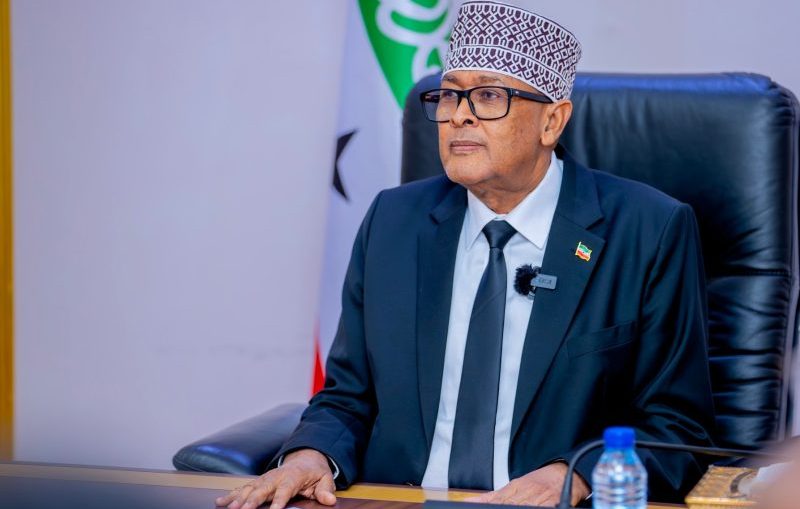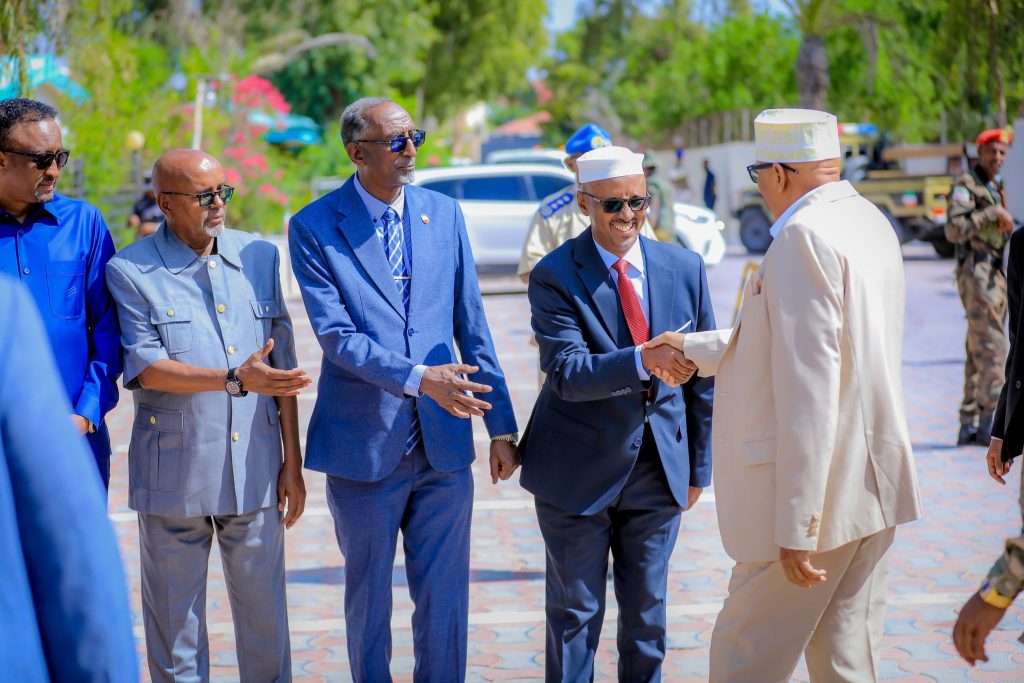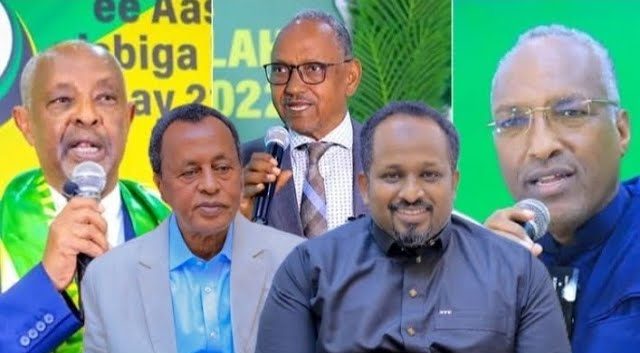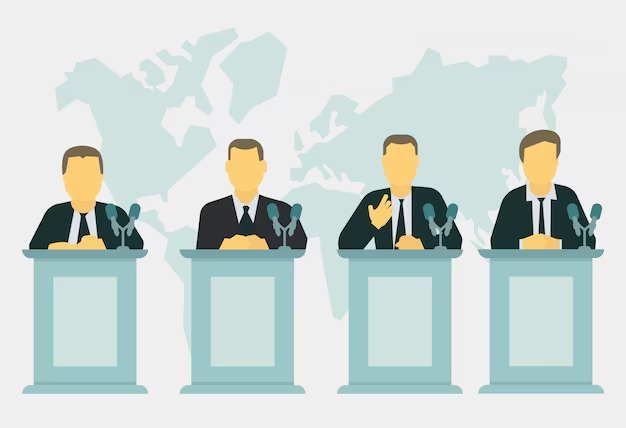Somaliland
Taiwan’s deputy FM attends Somaliland presidential inauguration

François Wu represents Taiwan in historic Somaliland leadership transition amid growing bilateral ties
In a significant diplomatic gesture, Taiwan’s Deputy Foreign Minister François Wu has arrived in Somaliland to attend the inauguration of President-elect Abdirahman Mohamed Abdullahi. Acting as the special envoy for Taiwan’s President Lai Ching-te, Wu’s presence underscores the strengthening ties between the two self-governing entities, which maintain representative offices in each other’s capitals.
Wu was warmly received in Hargeisa by Somaliland’s Deputy Minister of Foreign Affairs Rhoda Jama Elmi, outgoing President Muse Bihi Abdi, and other senior officials. This visit marks Taiwan’s continued commitment to its unique relationship with Somaliland, a region that remains unrecognized internationally.
The inauguration of Abdullahi, who secured a decisive victory with 64% of the vote, represents the sixth peaceful transfer of power in Somaliland’s history. As a former parliamentary speaker, Abdullahi’s leadership comes at a pivotal moment for Somaliland, as it seeks international recognition and navigates regional challenges.
Since establishing formal ties in 2020, Taiwan and Somaliland have deepened cooperation in various sectors, despite both facing limited diplomatic recognition. Taiwan’s engagement with Somaliland reflects its broader efforts to foster partnerships with like-minded regions, emphasizing shared values of democracy and self-governance.
This growing partnership not only enhances bilateral relations but also highlights the global implications of Taiwan’s and Somaliland’s parallel quests for international legitimacy. Both entities continue to assert their sovereignty while navigating complex geopolitical landscapes.
Somaliland
Somaliland’s Cabinet Sounds the Alarm

President Irro’s government targets traffic fatalities, civilian force integration, and economic acceleration in Somaliland’s 17th Council of Ministers session.
Somaliland’s 17th Council of Ministers meeting tackled critical national issues—from deadly road accidents and security upgrades to 18 May unity campaigns and economic reform strategies.
In a pivotal closed-door session at the Hargeisa Presidential Palace, Somaliland’s Council of Ministers convened under the leadership of President Abdirahman Mohamed Abdullahi Irro. The message was clear: Somaliland cannot afford complacency—not in its economy, its roads, or its national unity.

The meeting’s top priority? A deadly surge in road accidents now officially classified as a national emergency. Ministers of Interior and Transport reported a dramatic spike in traffic deaths—now surpassing crime as the leading cause of civilian casualties. The Cabinet swiftly commissioned a nationwide study to dig deep into the roots of this crisis, signaling an era of data-driven reform.
On the economic front, the Finance Ministry unveiled promising news: domestic revenue collection, particularly from GST, is climbing. A new Economic Strategy Committee is now crafting long-term reforms aimed at economic resilience, independence, and investment appeal.
Meanwhile, Somaliland’s 34th Independence Anniversary looms, and it won’t be business as usual. This year’s theme, “Through Unity, We Achieve Victory,” echoes President Irro’s broader vision of solidarity across clans, sectors, and regions. A revitalized civic engagement program will roll out during the 18 May celebrations to ignite national pride.

Also highlighted was a major leap in public sector transparency: the government’s first 100-day performance report will be released in multiple formats to reach every corner of the population. Biometric registration of armed forces personnel has also been launched—modernizing defense infrastructure and tightening national discipline.
From fishing sector development in Salel to the near-completion of civilian force integration in key frontier regions, Irro’s administration is making one thing clear: this government isn’t here to manage decline—it’s here to engineer a national renaissance.
Somaliland
Will Somaliland’s Former Ruling Party Survive Its Internal Implosion?

Leadership struggle, clan rifts, and unconfirmed sabotage allegations threaten to destroy Kulmiye after its crushing 2024 election defeat.
Somaliland’s once-dominant Kulmiye party faces existential collapse after a disastrous election loss. Leadership battles, clan divides, and allegations of sabotage by Waddani deepen the crisis. Will Kulmiye survive?
Kulmiye, the party that once ruled Somaliland for over a decade, is now gripped by internal warfare. Defeated in the 2024 elections, humiliated by finishing third, and blindsided by the rise of the KAAH party, Kulmiye has entered a death spiral that eerily echoes the collapse of UDUB in 2010. And this time, the threat isn’t external — it’s self-inflicted.
At the heart of the storm is Chairman Mohamed Kaahin Ahmed, a former Interior Minister blamed by party factions for the electoral debacle. They accuse him of clinging to power, despite being out of touch, politically fatigued, and lacking the mandate to lead the opposition. Some demand his resignation; others demand he be ousted by force.
But this isn’t just about leadership. This is about identity — and the dangerous fracture lines of clan politics. Kaahin, like the chairmen of Waddani and KAAH, hails from the “east of Burco” region. That’s three major parties, three leaders, one clan. For many within Kulmiye, that’s a red line. The fear: if Kulmiye doesn’t diversify its leadership now, it will become a tribal relic, incapable of rallying national support in a deeply regionalized political landscape.
And then there’s the whisper war. Unconfirmed but widely discussed rumors accuse Waddani of playing divide-and-destroy, allegedly weaponizing former Kulmiye insiders to destabilize the party from within. Whether true or not, the paranoia alone is inflaming tensions and eroding trust.
Inside the party, radical voices are rising. Hardliners want Kaahin removed by any means necessary. Moderates warn that if the party doesn’t reform, it will disintegrate. But all agree on one thing: Kulmiye is out of time.
History is knocking. Just like UDUB, which disintegrated after losing power to Kulmiye 15 years ago, Kulmiye now risks becoming another cautionary tale in Somaliland’s political graveyard. If it cannot resolve its leadership crisis, heal its clan fractures, and fight off internal sabotage, its legacy will end not in opposition, but in oblivion.
Report: Analysis of the Internal Conflict within Somaliland’s Kulmiye Party
Somaliland
Somaliland’s Cultural Awakening: Irro Launches a Legacy-Building Summit

Hargeisa hosts historic cultural conference as President Irro pushes for a revival of identity and values.

President Abdirahman Mohamed Abdullahi Irro
President Irro opens Somaliland’s first national cultural summit, declaring a new era of heritage, ethics, and unity in Hargeisa. WARYATV unpacks the deeper political message.

President Abdirahman Mohamed Abdullahi Irro
“Culture is the soul of our nation,” Irro proclaimed, framing the summit not as nostalgia but as resistance. Resistance against globalization, tribal division, and political amnesia.
Held at the Mansoor Hotel and orchestrated by the Ministry of Information, Culture, and National Guidance, the summit is more than a celebration. It’s a battleground of ideas, with artists, elders, scholars, and poets summoned to wrestle with the social fragmentation creeping into Somaliland’s rapidly urbanizing society.

President Irro’s arrival is pictured, with (from left) Hargeisa Mayor Mooge, Governor Adad, Security Minister Abdalla, and Information Minister Ahmed Yasin present to welcome him
Nine themes form the backbone of the summit: from tribalism and modernity to childrearing and politics. This is cultural repair work at a national level—a recognition that Somaliland’s resilience must come not only from its economy or diplomacy, but from its ethical memory.
Irro’s keynote was less political speech and more national sermon. He spoke of poetry as historical resistance, of ancestral wisdom as an intellectual framework, and of cultural pride as an antidote to imported confusion. In an era where identity is weaponized, this summit is Irro’s answer to moral dislocation.
But there’s a sharp political undercurrent: as Somaliland waits for recognition, it’s also defining what, exactly, it wants the world to recognize. This summit isn’t just about heritage. It’s about narrative power.
WARYATV sees this as the start of a wider cultural doctrine. If Somaliland can’t yet redraw political borders on a map, it can redraw the soul of its society—with language, law, ethics, and art.
Let others debate borders. Somaliland is defining what it means to be a nation.
Legacy isn’t given. It’s authored.

Hussein Adan Igeh (Deyr), Spokesman for the President of the Republic of Somaliland
Somaliland
Report: Analysis of the Internal Conflict within Somaliland’s Kulmiye Party

Analysis of the Post-Election Crisis in the Kulmiye Party.
Somaliland’s political landscape underwent a significant shift following the November 2024 elections. The Kulmiye party, after 14 years of political dominance, suffered a major electoral setback, finishing in a distant third place. The Waddani party secured victory and formed the new government, while a new political force, the KAAH party, also emerged strongly. This report analyzes the escalating internal conflict within the Kulmiye party, examining its causes, key factions, contributing factors, and potential consequences, based on recent developments reported from the party’s headquarters in Hargeisa. Public perception, as noted by observers like WARYATV, increasingly views the party as being on the brink of serious conflict and potential collapse.
2. The Core Dispute: Leadership and Accountability
The immediate trigger for the current open conflict is the question of the party’s leadership, specifically the future of Chairman Mohamed Kaahin Ahmed, who served as the Minister of Interior in the previous Kulmiye government. The party’s poor electoral performance has catalyzed demands for change at the top. Several distinct arguments fuel the push to replace Kaahin:
- Accountability for Defeat: One significant faction directly blames Chairman Kaahin’s leadership for the party’s electoral failure. They argue that responsibility for the poor results lies with him, necessitating his removal to allow for renewal and a change in direction.
- Capacity and Age: Another line of argument suggests that Mr. Kaahin, described as an “old man,” may no longer possess the necessary energy or capacity to effectively lead the party, especially in opposition. Proponents of this view advocate for him to step aside and rest.
- Legitimacy of Tenure: A further point raised is that Kaahin’s chairmanship is perceived by some as temporary or interim. This faction argues that the party requires a properly constituted internal election to select a new, mandated leader to navigate the post-election period.
3. The Clan Dimension: A Deepening Fault Line
The leadership dispute has reportedly fractured the party along clan lines, adding a complex and potentially volatile dimension to the conflict. A key factor highlighted is the geographic and clan affiliation of Chairman Kaahin:
- Mohamed Kaahin Ahmed hails from the “east of Burco” region.
- Critically, the chairmen of the two other major parties – the ruling Waddani party and the new KAAH party – are also reportedly from the same “east of Burco” region and belong to the same clan as Kaahin.
- This concentration of leadership from a single clan and region across all three major political parties is viewed by factions within Kulmiye as politically unsustainable and imbalanced. The argument implies that for Kulmiye to remain a viable national party and effectively challenge the government, it needs leadership that reflects greater regional and clan diversity, setting it apart from the perceived dominance of the “east of Burco” group in the current political constellation. Failure to address this could alienate potential supporters from other regions and clans.
4. Allegations of External Interference (Unconfirmed)
Further complicating the situation are unconfirmed reports suggesting interference from the ruling Waddani party. These reports allege a strategy aimed at exacerbating Kulmiye’s internal divisions:
- It is claimed that Waddani is utilizing former Kulmiye officials who were inactive or even worked against their own party during the crucial 2024 election campaign (without formally resigning).
- The alleged objective is to use these individuals to sow discord and further destabilize Kulmiye from within.
- The strategic motive, according to these reports, is to prevent Kulmiye from regrouping into a strong opposition force, thereby consolidating Waddani’s governmental power with minimal effective challenge. While these remain unconfirmed allegations, their circulation indicates a high level of suspicion and mistrust surrounding the conflict.
5. Internal Radicalism:
The conflict is also characterized by the presence of hardline voices within the party. Reports mention “extremist Kulmiye supporters” who are advocating for the forceful removal or expulsion (“thrown out”) of Chairman Mohamed Kaahin. This indicates a level of internal animosity that could hinder reconciliation efforts.
6. Historical Precedent and Future Outlook: The Shadow of UDUB
Analysts are drawing parallels between Kulmiye’s current predicament and the fate of the UDUB party. UDUB, once Somaliland’s dominant ruling party, similarly faced internal strife and ultimately collapsed, disappearing from the political scene after its defeat by Kulmiye in the 2010 elections.
This historical precedent looms large, fueling fears that Kulmiye could suffer a similar disintegration. The combination of electoral defeat, a bitter leadership struggle, deep-seated clan divisions, and potential external manipulation creates a precarious situation.
7. Conclusion:
The Kulmiye party is facing an existential crisis. The conflict over Chairman Mohamed Kaahin Ahmed’s leadership is merely the focal point for deeper issues of accountability, strategic direction, internal democracy, and crucial questions of clan and regional representation in Somaliland’s politics. Unconfirmed allegations of external interference by the ruling Waddani party add another layer of complexity and potential volatility.
The outcome remains uncertain. However, the intensity of the internal divisions, the emergence of clan-based factions, and the historical precedent of UDUB’s collapse suggest that the Kulmiye party is at a critical juncture. Its ability to manage this leadership transition, address the underlying grievances (particularly regarding clan balance), and unify its base will determine whether it can survive and reconstitute itself as a significant political force or if it will fade from relevance like its predecessor. The coming weeks and months will be crucial for the party’s future.
EDITORIAL
Idiots with Megaphones: How Somaliland Rewards the Worst

Loud over logic. Arrogance over insight. This is the true politics of Hargeisa.
The louder the lie, the faster the rise. WARYATV exposes how cognitive bias fuels Somaliland’s dysfunctional power structure.
In Somaliland, politics is theater—and the lead roles go to the loudest fools. Those who know the least, boast the most. Those who should lead? They’re too “quiet,” “complicated,” or “dangerous.”
Psychologists call it the Dunning-Krueger effect—a cognitive bias where incompetents believe they’re geniuses, while true experts doubt themselves. In Somaliland’s halls of power, this effect is a lifestyle.
Think about it: the ministers who can’t explain their own departments. The generals who don’t know maps. The diplomats who’ve never written a policy memo. But they dominate meetings, they charm foreign donors, they get re-appointed. Why? Because they project confidence—not substance.
And the public? Conditioned to mistake noise for leadership.
Even worse: those who dare to think—to propose long-term plans, to challenge clan interests, to reform the ministries—are exiled. Sidelined. Or shamed into silence.
Somaliland doesn’t fail by accident. It fails by design. A design where shouting trumps strategy, and ignorance isn’t just tolerated—it’s weaponized.
WARYATV isn’t here to entertain lies. We’re here to rip the mask off.
Recognition won’t come until merit does. And merit will never rise until fools fall.
It’s not about brains vs. clans. It’s about survival vs. decay.
Somaliland deserves better. The people deserve leaders who can think, not just talk.
Wake up. Demand more. Think loud.
From Degrees to Dismissal: Why Smart Somalilanders Never Lead
Somaliland’s Political Class: Selling Out a Nation for Profit
Somaliland
President Irro Declares New Era: Somalia Has Waged War. We Are Responding Like a Nation

In a thunderous constitutional address, Somaliland’s president halts talks with Mogadishu and unveils a bold national security, defense, and recognition strategy.
President Abdirahman Mohamed Abdullahi Irro just drew a red line—and the world heard it. In a fiery constitutional address before Somaliland’s Parliament, he didn’t just condemn the Somali Prime Minister’s provocative visit to Las Anod. He escalated the narrative: Somalia has waged war on Somaliland. And Hargeisa is done playing nice.
The speech marked a pivot from patience to power. Irro announced the official suspension of all dialogue with Mogadishu, slamming Hamse Abdi Barre’s visit as an act of war. It’s not diplomacy anymore—this is deterrence.
Irro’s war doctrine is now crystal clear:

Military consolidation and civilian nationalization into a streamlined, modernized force.
Creation of a reserve army equipped with enhanced training and “modern knowledge.”
Justice reform for national unity and legal trust.
A 19% economic surge during his administration, now parlayed into investment talks.
But Irro isn’t just beefing up bullets—he’s upgrading borders diplomatically. In perhaps the most strategic shift of his presidency, Somaliland is strengthening bilateral engagements with Washington, London, and the UAE. The UAE will fund roads, education, agriculture, and livestock infrastructure, confirming that Somaliland is open for business—even if the world hasn’t recognized it yet.
And while Somalia plays internal sabotage, Somaliland courts foreign allies. The U.S. is helping advance national interests, the UK is assisting security efforts, and Irro is making direct visits to Djibouti and Ethiopia—neighbors vital to both regional stability and recognition diplomacy.
At home, Irro has launched a governance campaign rooted in popular legitimacy. Meetings with civil society, youth, and elders are building the case that Somaliland’s nationhood is not a government agenda—it’s a national consensus.
The message from Cirro is thunderous: We will defend our land, modernize our forces, court our allies, and abandon meaningless talks. Recognition is no longer a request—it’s a destiny forged by force, diplomacy, and economic might.

EDITORIAL
From Degrees to Dismissal: Why Smart Somalilanders Never Lead

Intelligence is not rewarded in Hargeisa—it’s exiled.
In Somaliland, merit is a liability. WARYATV exposes why educated citizens are systematically sidelined by a ruling elite that fears intelligence more than it fears failure.
For decades, Somaliland’s political and administrative structure has been shaped not by the brightest minds, but by those most willing to serve the status quo. Genuine intelligence? That’s dangerous. It questions. It analyzes. It holds mirrors to corruption. So the system reacts the only way it knows how: with expulsion, character assassination, and strategic isolation.
Ask yourself this: How many PhDs are sitting in government today? How many economists are drafting fiscal policy? How many engineers are leading infrastructure? Now compare that with how many ex-traders, campaign donors, or clan cousins hold the keys to public institutions.
The answer is obvious.
Intelligence threatens mediocrity. That’s why it’s unwelcome.
When capable Somalilanders return from abroad with Western degrees and experience, they’re often sidelined or used as PR tools. One minister told WARYATV off-record: “They brought me in for donor meetings, but shut me out of real decisions. The clan elders made every call.”
Worse, our smartest minds are now targets. When they criticize corruption, they’re accused of being agents of UAE. When they demand reform, they’re branded as elitists. It’s not an accident—it’s a defense mechanism. A dumb regime can only survive if it suppresses the very people who could make it smart.
This isn’t just tragic. It’s national suicide.
Because when intellect is driven out, the only thing left to lead is ego. We get officials who read budgets like poems, ministers who can’t spell “policy,” and decision-makers who think WhatsApp rumors are intelligence briefings.
WARYATV says: Stop asking why Somaliland isn’t recognized. Start asking why it’s rejecting its best minds.
Until brains matter more than bloodlines, the republic will remain a shadow of its potential.
Somaliland’s Political Class: Selling Out a Nation for Profit
Somaliland
Pakistan Pivots to Berbera: $1.3 Billion Sea Trade Gambit Targets Africa’s Doorstep

As Trump slaps tariffs, Islamabad turns to Somaliland’s port to anchor its East African export blitz.
Pakistan’s geopolitical chessboard is shifting—and the next major move is Berbera. Faced with a global trade war sparked by Donald Trump’s tariff blitz, Islamabad is pivoting fast from dependence on U.S. markets to the rising opportunities in Africa. And at the heart of this pivot is Somaliland’s Berbera Port—a strategic linchpin now shaping Pakistan’s maritime future.
$1.3 billion in trade with East Africa is already on the books, but Berbera is the game-changer. Not only is it geographically aligned with Pakistan’s Gulf routes, it is now emerging as the primary node in East African shipping, potentially dethroning Kenya’s Mombasa as the region’s top trade hub.
This isn’t lip service. Pakistan’s Minister for Maritime Affairs, Junaid Anwar Chaudhry, has greenlit a 2026 first-phase launch of new sea corridors, designating Berbera as a long-term export base aimed at penetrating the East African Community’s 500-million-strong consumer market. Backed by an inter-ministerial task force, this isn’t just port development—it’s strategic infrastructure warfare.
Berbera is the kill shot. It unlocks access not just to Somaliland or South Sudan, but to Ethiopia’s 120 million consumers—a prize Islamabad is eager to capture as Addis aligns diplomatically with Hargeisa. With Pakistani textiles, agriculture, and machinery poised for market expansion, Somaliland stands to benefit too, transforming into a critical export-processing node between Asia and Africa.
Meanwhile, Washington’s tariff sword is swinging hard. Trump’s administration just hit Pakistan with a 29% tariff penalty, citing protectionist policies. Islamabad’s retaliation is not through war but trade redirection—and Berbera offers the escape hatch.
Pakistan’s bet on Berbera marks a turning point for South-South trade realignment. If Islamabad plays it right, this move could not only outmaneuver U.S. trade pressure but also cement Berbera as the Dubai of the Horn—unofficially, a de facto gateway not just for Pakistan, but for every Asian power seeking an East African entry point.
This is more than commerce—it’s geopolitical real estate acquisition through maritime leverage.
-

 Analysis2 months ago
Analysis2 months agoSaudi Arabia’s Billion-Dollar Bid for Eritrea’s Assab Port
-

 ASSESSMENTS3 weeks ago
ASSESSMENTS3 weeks agoOperation Geel Exposes the Truth: International Community’s Reluctance to Embrace Somaliland as a Strategic Ally
-

 Somaliland3 months ago
Somaliland3 months agoSomaliland and UAE Elevate Ties to Comprehensive Strategic Partnership
-

 Africa1 year ago
Africa1 year agoHow Somaliland Could Lead the Global Camel Milk Industry
-

 Analysis1 year ago
Analysis1 year agoIran escalates conflict, attacking Israel; US forces help Israel to intercept Iranian projectiles
-

 Top stories11 months ago
Top stories11 months agoGunmen Kill 11 in Southeastern Nigeria Attack, Army Reports
-

 Analysis1 year ago
Analysis1 year agoIsrael and Iran on Edge: Tensions Escalate Amidst Rising Threats
-

 TECH11 months ago
TECH11 months agoZimbabwe Approves Licensing of Musk’s Starlink Internet Service






























